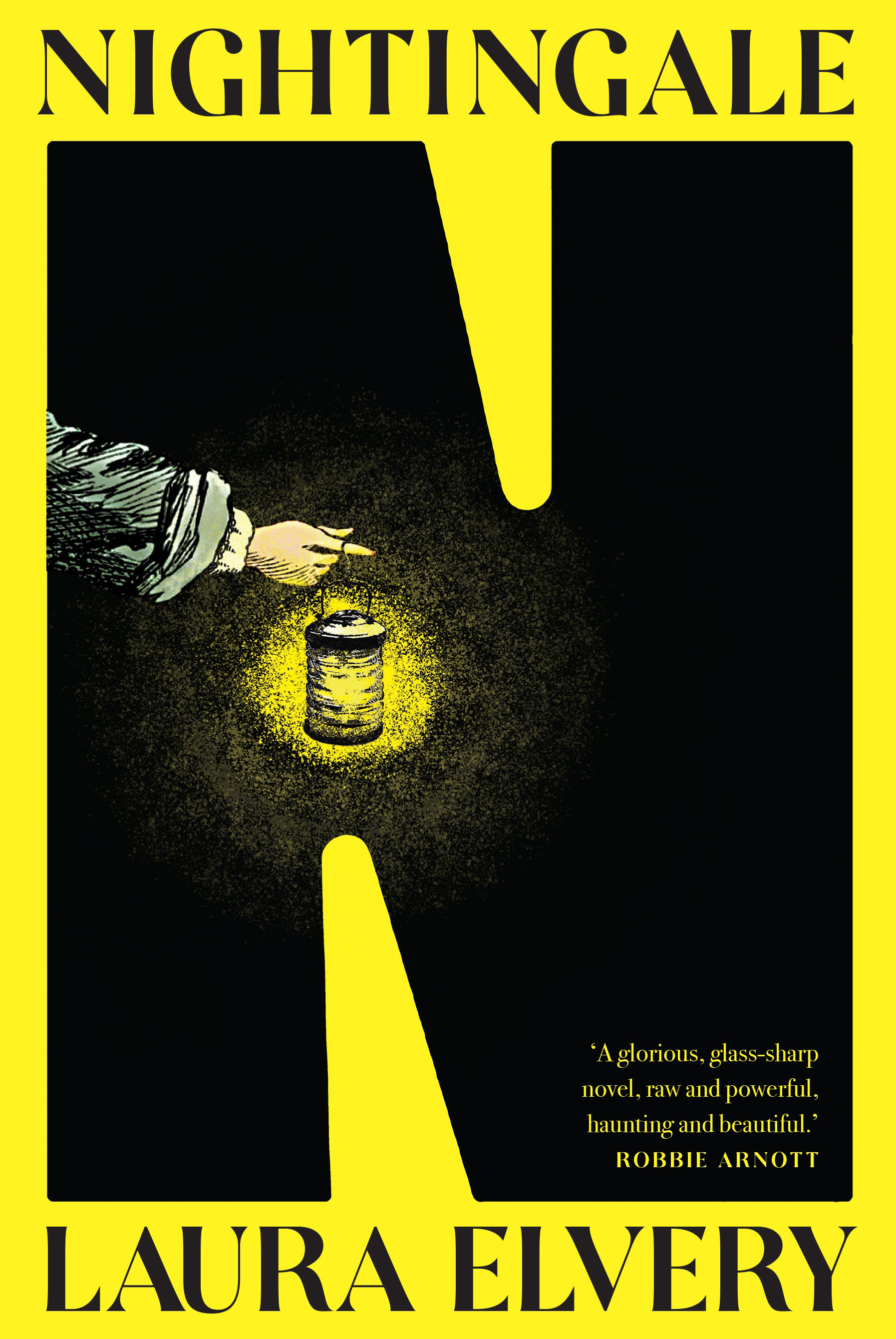
- Free Article: No
- Contents Category: Fiction
- Review Article: Yes
- Article Title: Florence’s ghost
- Article Subtitle: An accomplished novel about Florence Nightingale
- Online Only: No
- Custom Highlight Text:
While reading this book, I saw an ABC TV Foreign Correspondent program on volunteer health workers in Ukraine tackling frontline fighters’ horrific injuries. I was moved by the stoic optimism of the soldiers, the dedication and compassion of the doctors and nurses, one of them wearing a brave slash of lipstick.
- Featured Image (400px * 250px):

- Alt Tag (Featured Image): Jane Sullivan reviews ‘Nightingale’ by Laura Elvery
- Book 1 Title: Nightingale
- Book 1 Biblio: University of Queensland Press, $32.99 pb, 222 pp
- Book 1 Cover Small (400 x 600):

- Book 1 Cover (800 x 1200):

- Book 1 Readings Link: https://www.readings.com.au/product/9780702265877/nightingale--laura-elvery--2025--9780702265877#rac:jokjjzr6ly9m
Florence Nightingale was a supervising nurse during a different war with Russia some 170 years ago – the Crimean War. Medicine and health care were far less advanced and mortality was horribly high. Nightingale picks up on the perennial task of health workers in a war: to save lives, to treat sickness, to sever limbs if need be, to comfort the distressed, and to carry on, even knowing that many of their patients will die.
The blurb tells us the story is inspired by the life of Florence Nightingale. This is a useful caution: the novel is not a fictional biography, and it is arguable that Florence is not the main character, though she is certainly the thread that holds things together. Nightingale’s page on Wikipedia reveals a formidable high achiever within the confines of the patriarchy: social reformer, statistician, and founder of modern nursing.
Thankfully, Elvery dodges the sentimental depictions of Florence by her contemporaries as ‘the lady with the lamp’: to her nurses, she is Miss N, a stern and much-revered Miss Jean Brodie type.
In a narrative that jumps about in time and place, we discover Florence as a child, born to disturb her parents’ peace; in her thirties, as the supervisor of nurses tending wounded and sick Crimean War soldiers at a barracks in Scutari, near Constantinople, doing God’s will and being useful; and in her nineties, at home in London, bedridden but her mind wildly wandering.
In this last phase of her life, she is visited by a ghost, Silas Bradley, one of all too many soldiers at Scutari whose lives could not be saved. For a ghost, he is pretty solid: people can see and talk to him, he manages to live on some level, even to have relationships with women, while forever remaining the age at which he died and forever plagued with intense pain from his war wounds. In a reversal of story tradition, he is a ghost haunted by a living woman, Jean Frawley.
Chapter by chapter, Silas and Jean take it in turns with Florence to offer their point of view (her servant, Mabel Watt, continues the story in an epilogue). Jean is one of Florence’s nurses at Scutari, but before they reach their destination, she and Florence meet Silas in France. There is an instant attraction: briefly Silas and Jean become secret lovers, but must now go their separate ways, hoping to meet in a cloudy future. Alas, no prizes for guessing the circumstances in which they do meet again.
How do these disparate stories fit together? It is not always clear to me, but what holds my attention is Elvery’s captivating prose. Although this is her first novel, she has already won prizes and acclaim for her short stories, and there is a focused lyricism here that zooms in on certain objects, actions, and surroundings (sometimes charming, sometimes grim) and brings them to vivid life. Every page has such highlights, but for me the strongest are the prologue, where we meet Florence in Athens, rescuing an owl from tormenting boys; and a superb passage focused on Silas’s dying, seen through Jean’s anguished eyes, when, in a transgressive moment, she literally touches his heart.
Ordinary life is heightened in Elvery’s prose, neatly condensing a nurse’s working day into a bizarre mix of routine tasks, trivia, and awfulness:
… serving broth, mixing brandies, cleaning up vomit, fetching hot bricks and ice bladders, finding a deck of cards beneath a soldier’s bed, washing linens, holding a man down on his front while a doctor prised gravel from his rump, refilling cupboards with fresh bandages and cloths, reading to a patient, taking a pair for a walk, washing a neck wound, listening to the same joke over and over when she passed a patient’s bed.
I find it significant that the male character in this story is a ghost, while the three women are very much alive. All of them care for others, woman’s traditional role, while men are still their superiors. But they also have their moments of protest. Jean, the most clearly realised character, yearns to follow her heart, even beyond death. Mabel will step out into the city when Florence dies, but she remains a practical servant: ‘Well, the washing still needed doing.’
What Florence yearns for is not clear. Elvery portrays her as a buttoned-up character, even in her private reflections (she had tempting offers of marriage but decided at thirty to remain single – I would have liked to know more about that). Her nightmarish memories of Scutari, ‘a slaughterhouse before I arrived’, are brusquely annihilated: ‘I’ve learned to try to plunge those images down like a kitten that I must drown in a bath.’ Her haunted final days suggest that it wasn’t quite a successful drowning.
At Scutari, she is a tireless workhorse and expects others to be the same. Most revealingly, perhaps, she stands with arms folded, observing the surgeons – all men, of course – at their grisly work. Even watching them is considered unorthodox behaviour for a nurse. What, we wonder, might she have achieved had she been allowed to train as a surgeon?
I am also led to wonder about the Florence Nightingale that the novel doesn’t show me. But that was never Elvery’s intention. On its own terms, I salute an accomplished novel with a mastery of language that is both delicate and powerful.


Comments powered by CComment